Counting skills Numbers 11–20 Worksheets for 4-Year-Olds
5 filtered results
-
From - To
Enhance early math learning with our "Counting Skills Numbers 11–20 Worksheets for 4-Year-Olds." Structured to support preschoolers, these fun, engaging sheets develop counting abilities and number recognition for numbers 11 to 20. Designed by educational experts, each worksheet combines colorful illustrations and simple exercises, encouraging young children to confidently count, trace, and match numbers. Ideal for home or classroom use, these resources not only strengthen foundational math skills but also make learning enjoyable. Give your child a head start in mathematics with these carefully crafted worksheets for ages 4 and up from Kids Academy.
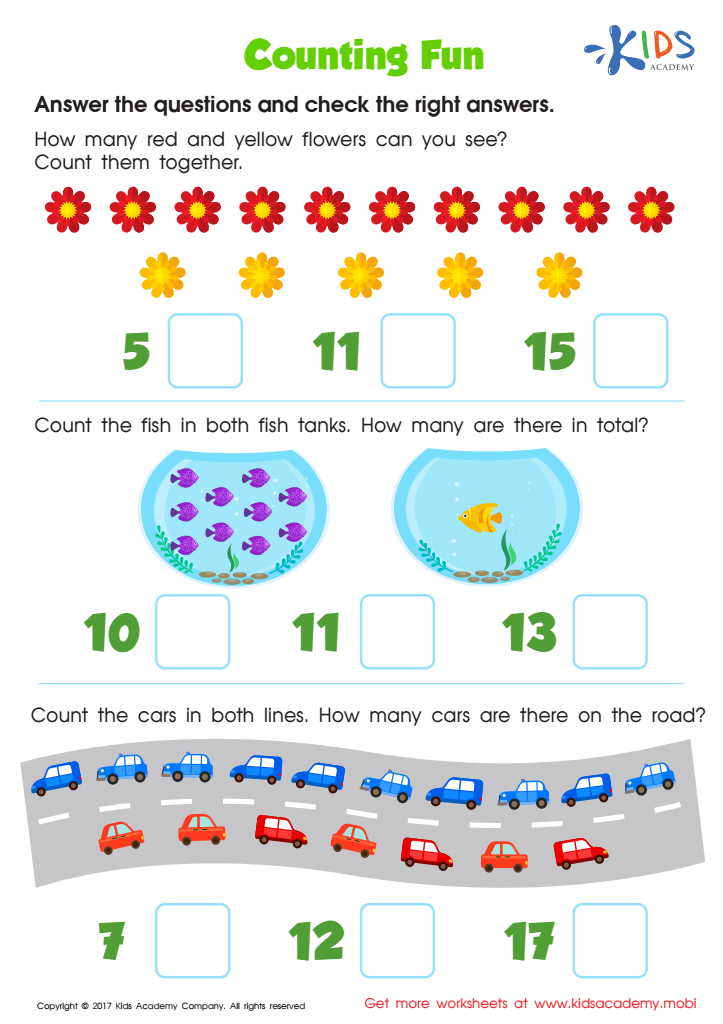

Counting Fun Worksheet
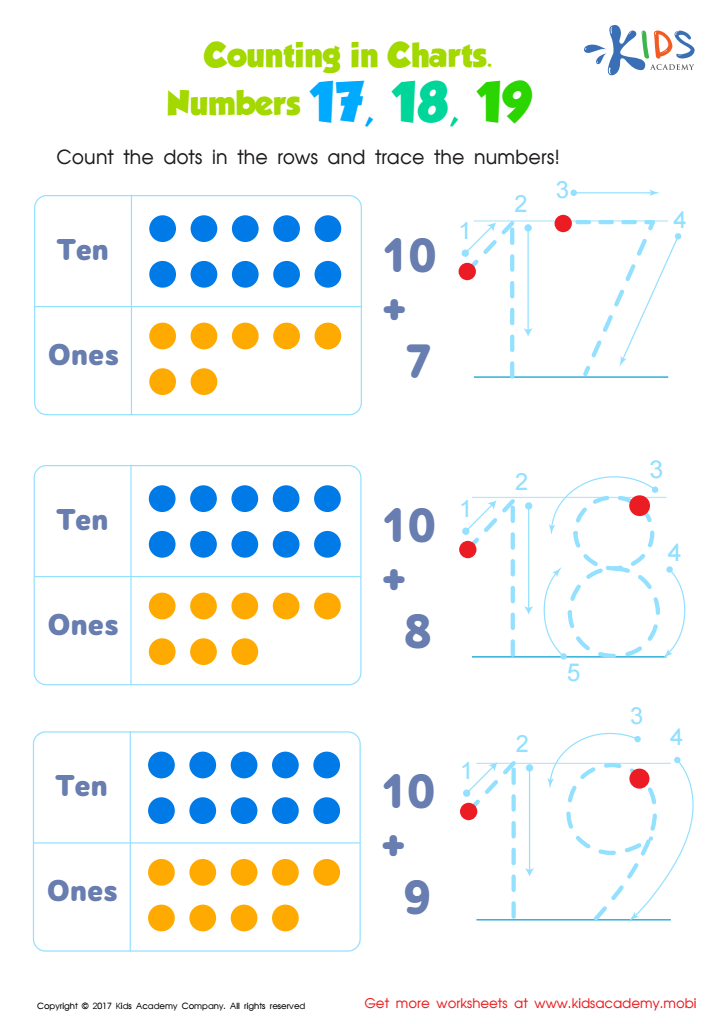

Kindergarten Number Tracing: Counting in Charts Worksheet
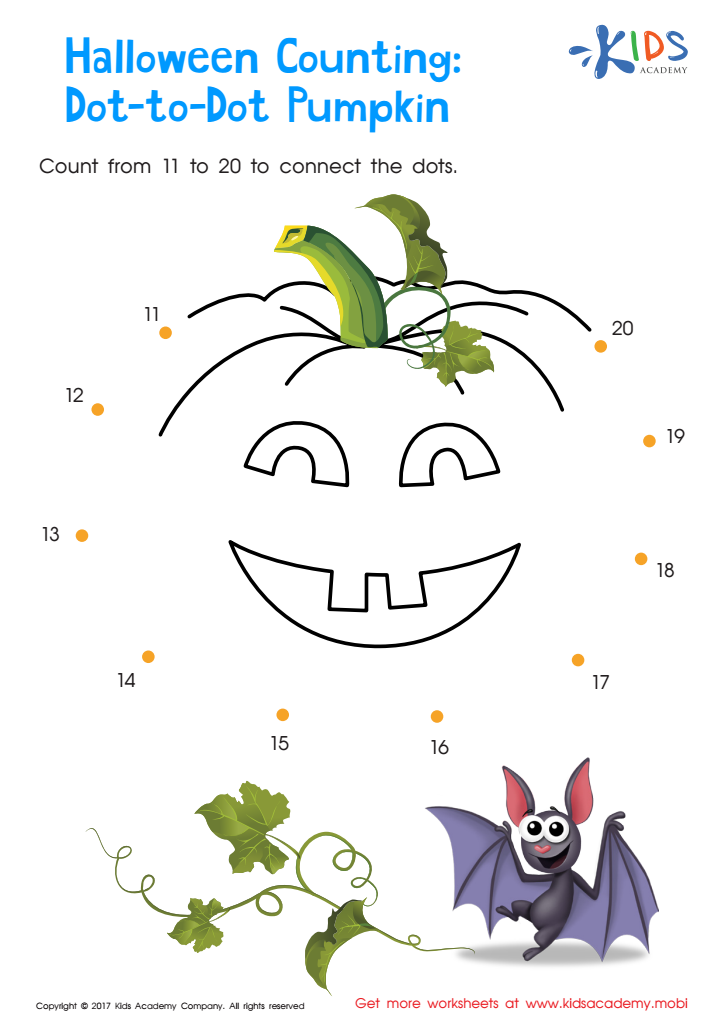

Ordering 11–20: Halloween Counting Worksheet
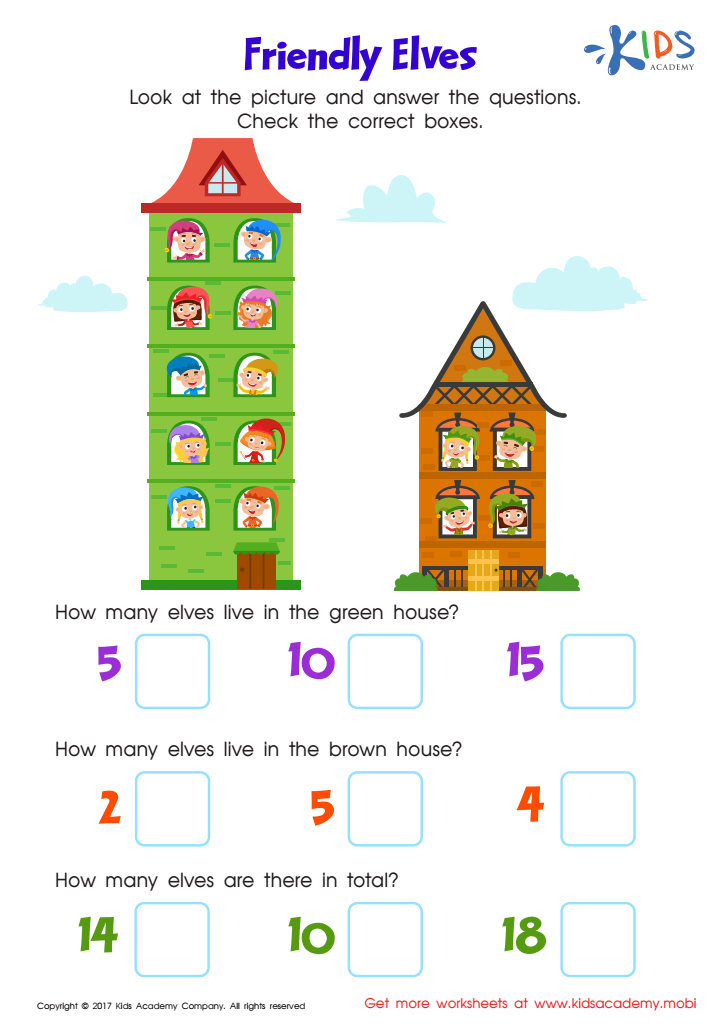

Place Value: Friendly Elves Worksheet
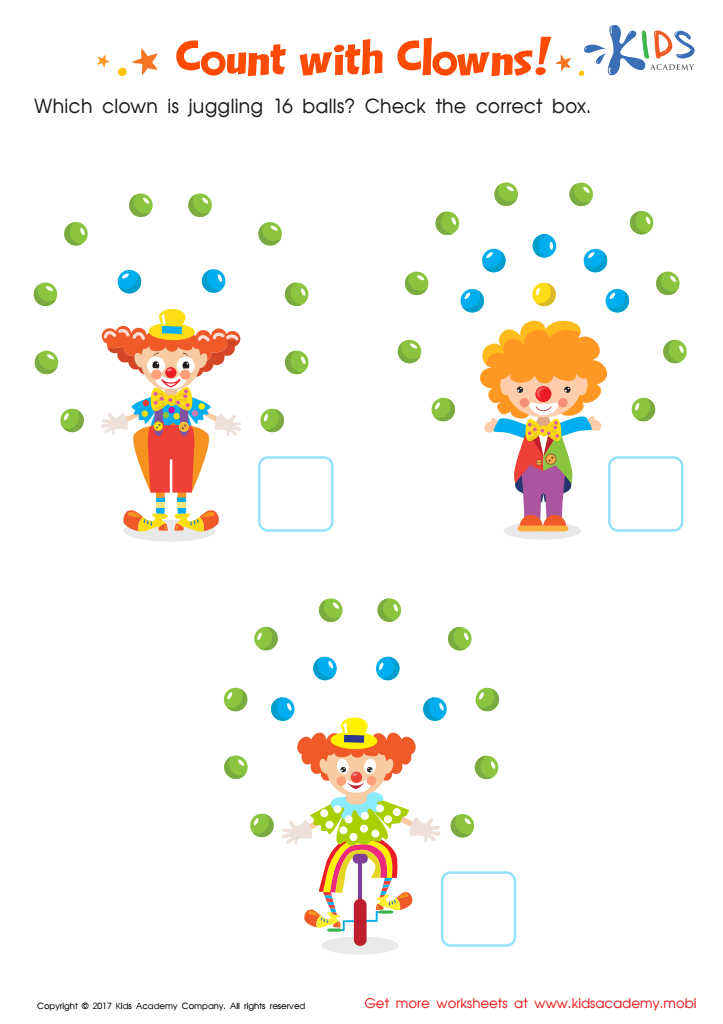

Count with Clowns Worksheet
Counting skills, particularly for numbers 11–20, play a crucial role in the early development of 4-year-olds, serving as foundational blocks for later mathematical understanding. For parents and teachers, emphasizing these skills offers numerous benefits.
Firstly, this age is a vital period for cognitive development. Learning to count beyond 10 helps children recognize number sequences, which improves their memory and develops their numerical fluency. It also facilitates an understanding of more complex mathematical concepts later on, such as addition, subtraction, and place value.
Secondly, mastering numbers 11–20 promotes fine motor skills when paired with activities like counting toys or drawing numbers. These hands-on experiences offer dual benefits, honing both their numerical comprehension and physical coordination.
Socially, counting is integrated into daily activities, from sharing toys to organizing play. Competency in counting can enhance children's confidence and interactions, supporting better social participation and teamwork.
Furthermore, early numeracy is linked to academic success. A strong grasp of numbers in early childhood has been shown to predict better mathematical performance in elementary school, giving them an academic edge.
In summary, fostering counting skills for numbers 11–20 in 4-year-olds nurtures both their cognitive and social development. By prioritizing these skills, parents and teachers are setting children on a path to future academic and personal success.
 Assign to My Students
Assign to My Students

















